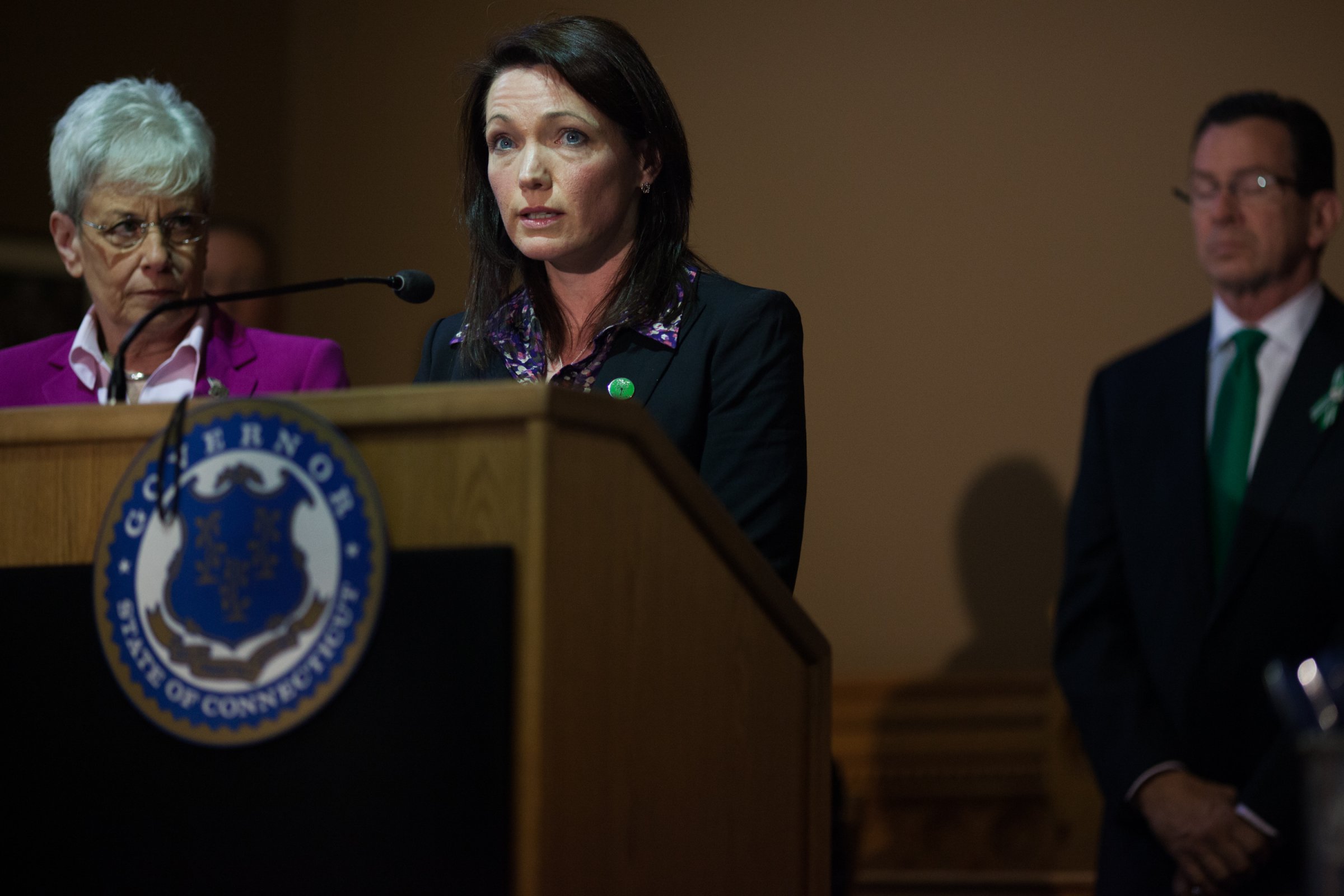
When I woke up on Monday morning to the news of the mass shooting in Las Vegas, my mind went straight back to December 14, 2012 — the day I lost my 6-year-old son, Dylan, to gun violence at Sandy Hook Elementary School. I became emotional as I heard about the many people who lost their children, their spouses or their siblings. I know firsthand that they’re on the very first step of a raw and incredibly hard journey to recovery.
I hope that those who lost a loved one in Las Vegas are kind to themselves and give themselves time to heal. There’s no correct playbook on how to deal with the pain. The coming days and years will be challenging, painful, difficult and hard to navigate. What’s most important is that they treat themselves with compassion and focus on self-care. They need to rely on their friends and family to provide the support they’ll need for a long time.
What helped me get through the difficult days was getting to work. That, of course, won’t be the path for everyone. But as a mom who has just lost her youngest child, I wanted to understand why this had happened and how it could have been prevented. I wanted to make sure Dylan didn’t die in vain.
After any tragedy, Americans are good at coming together to help those affected and to find ways to prevent these tragedies from happening again. But when it comes to gun violence, the solutions aren’t as obvious. A few other parents who lost their children at Sandy Hook also wanted to find answers, so we decided to launch our organization, Sandy Hook Promise, to find a way to prevent gun-related tragedies. At the beginning, we made the mistake of initially focusing on just policy. We fought hard for universal background checks, something I deeply believe in. But when the Senate rejected that measure in 2013, we realized that there was something else going on.
The debate around gun control has always focused on whether to take guns away from people or give people more guns. We need to reframe and depoliticize the conversation. It shouldn’t be a choice between Second Amendment rights and gun control laws. It’s not about good guys with guns and bad guys with guns. It’s not about just mental health or the weapons themselves. The special interest groups — on both sides of the issue — with a financial stake in the conversation aren’t helping either. Instead, we should all focus on what we can do together to help individuals before they ever pick up a gun to hurt themselves or someone else.
While we don’t yet know all of the details surrounding the situation in Las Vegas, we do know that any mass shooting is preceded by warning signs — whether someone mentions it in conversation, posts on social media or exhibits behavioral changes. Given what we do know, it’s safe to assume that the shooter in Las Vegas had some sort of plan. Whenever there’s a plan, there’s an opportunity for someone to identify what’s going on and intervene before lives are lost. But as a society, we’re not trained to recognize those signs. Just like we educate people to identify the signs of someone having a stroke or a heart attack, we need to ensure that educate people about the warning signs of gun violence.
That became our new mission at Sandy Hook Promise. We talked to thought leaders, mental health experts, politicians, gun owners and non-gun owners, and we realized that the discourse around gun violence lacked any solutions focused on education and awareness. So, we launched our “Know the Signs” training program in 2014, which focuses on how to identify at-risk behaviors like social isolation and depression and how to step in before someone ever turns to a gun. We’ve since taught over 2 million children and adults across 50 states, and we’re on track to educate another 2 million this year alone. We’ve made a real impact that could save thousands of lives.
That’s not to say that policy changes, passing legislation and voting the right politicians in to office isn’t important. It absolutely is. But the history of country is built on social change at a grassroots level. The policy and politics always comes after. While we should absolutely advocate to end policies that allow for the sale of silencers and inappropriate or unsafe access to weapons, we should focus on advocating for policies that reinforce education and awareness. Some states are embracing extreme risk protection orders, which allow courts to temporarily prohibit an individual from accessing their guns if law enforcement or family members believe he or she is a danger to himself or others. Policies that look backward on whether a person has ever been convicted of a crime or diagnosed with mental illness don’t help. We need to look at a person’s state of mind right now.
After every mass shooting, we have the same argument without any real results. Meanwhile, more kids like Dylan are dying every single day. We’ll only be able to save their lives when we stop fighting and start listening to each other.
More Must-Reads from TIME
- Donald Trump Is TIME's 2024 Person of the Year
- Why We Chose Trump as Person of the Year
- Is Intermittent Fasting Good or Bad for You?
- The 100 Must-Read Books of 2024
- The 20 Best Christmas TV Episodes
- Column: If Optimism Feels Ridiculous Now, Try Hope
- The Future of Climate Action Is Trade Policy
- Merle Bombardieri Is Helping People Make the Baby Decision
Contact us at letters@time.com